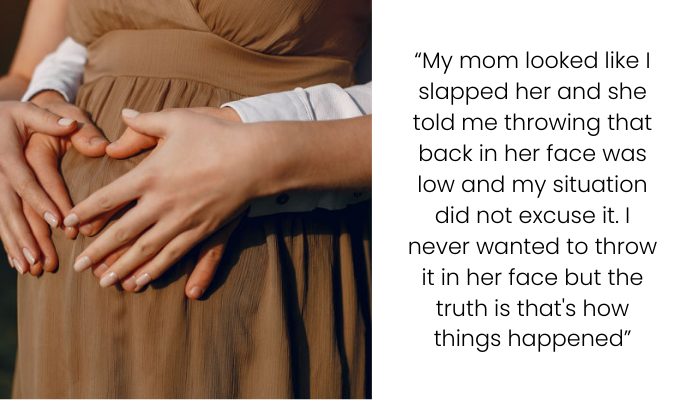Woman Chooses Compassion Over Prolonged Suffering for Baby With Fatal Diagnosis, Faces Backlash From Mom
In this deeply emotional Reddit post, a woman and her husband are grappling with a devastating diagnosis during a long-awaited pregnancy: their unborn child has a fatal fetal abnormality. Having already endured the trauma of watching her younger brother suffer and die from a similar—though less severe—condition, the OP (Original Poster) has made the heart-wrenching decision to end the pregnancy. While her father supports her fully and her in-laws express hope and denial, it’s her mother’s reaction that causes the most pain. Despite experiencing a similar loss herself, the mother takes a firm stance against abortion and pleads with her daughter to carry the pregnancy to term. The conflict reaches a breaking point when OP, in a moment of anguish, tells her mother she refuses to make her child suffer as her brother once did, prompting a painful confrontation.
This post is a raw reflection on grief, generational trauma, and the impossible choices parents sometimes face. It also raises difficult ethical, medical, and emotional questions about autonomy, suffering, and love. The core of the conflict lies not in love lost between mother and daughter, but in two deeply wounded individuals reacting to grief and loss in opposite ways. One clings to hope and second chances; the other learns from the past and chooses mercy.
Many people do not understand how difficult it is for expecting parents to have to make tough decisions regarding their pregnancy

The poster shared that she and her husband learned that their baby had a fatal fetal abnormality, which is why they decided to end their pregnancy
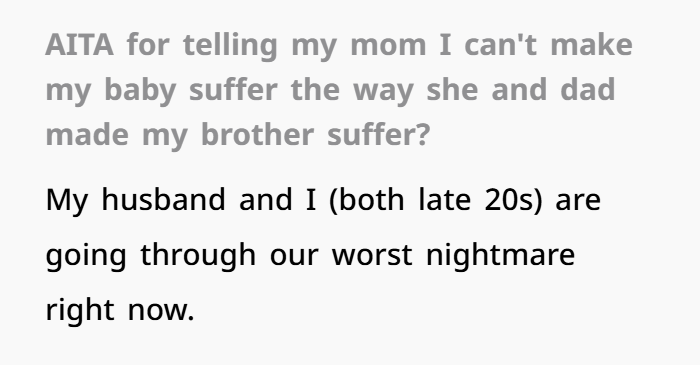
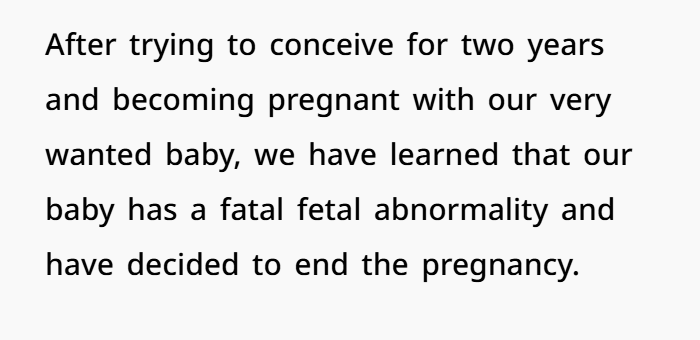
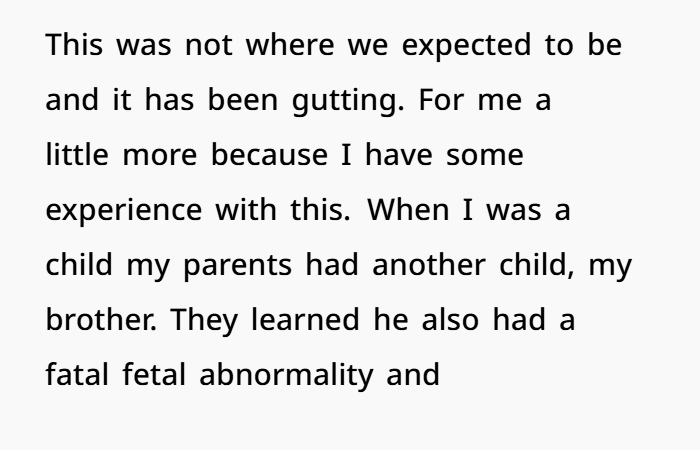
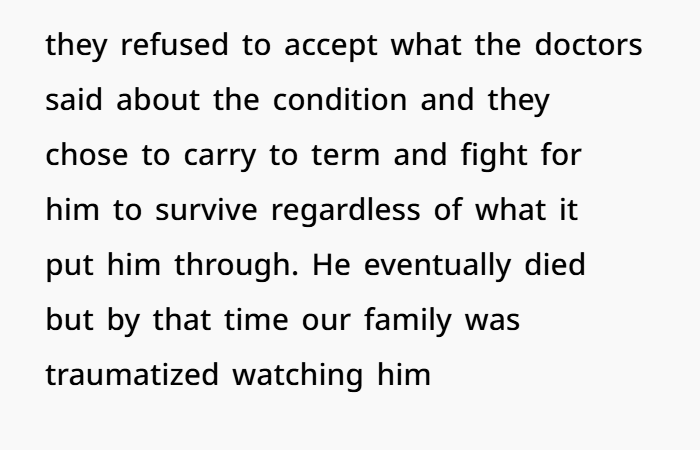
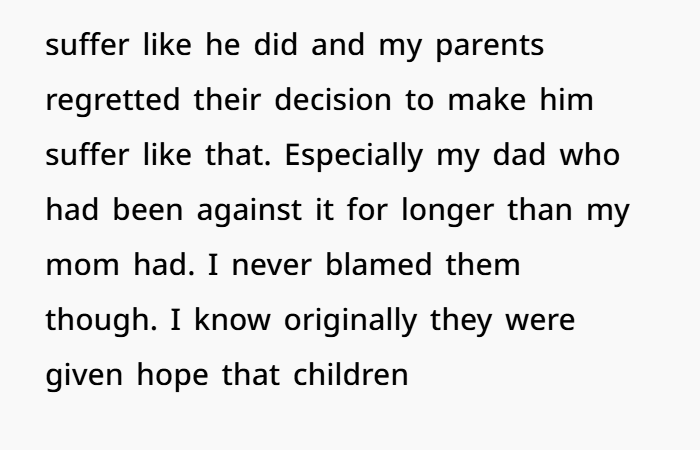
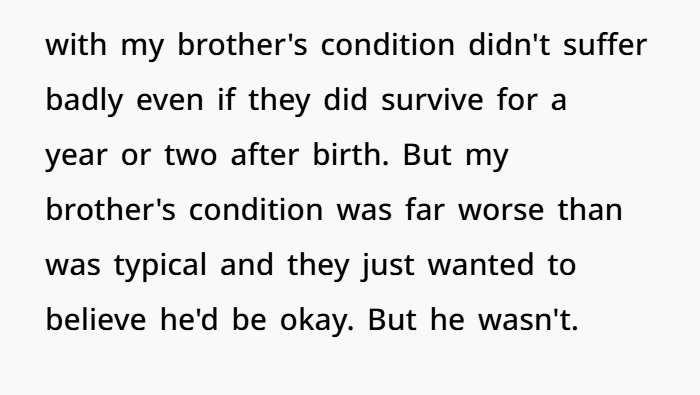
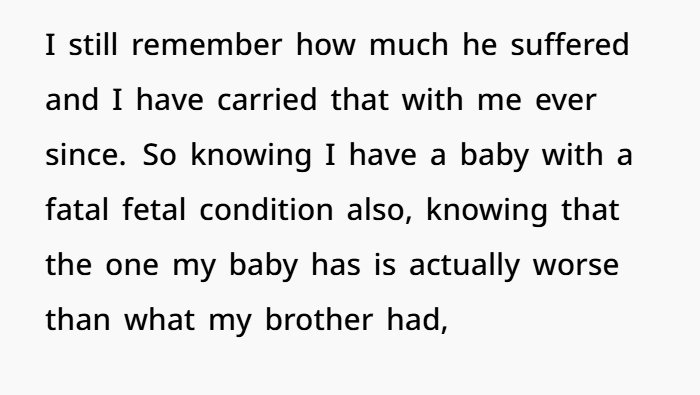
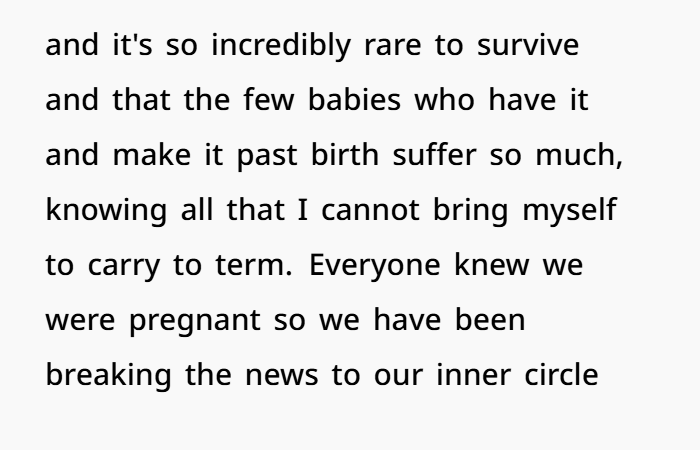
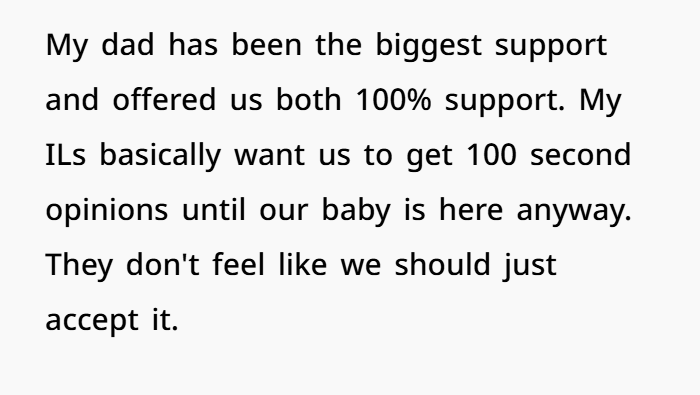
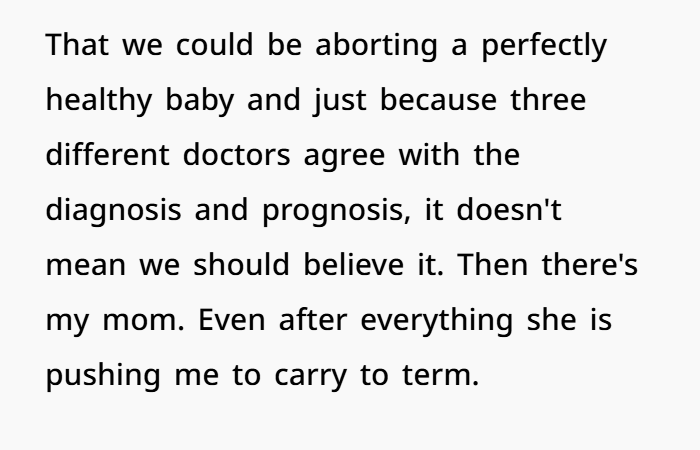
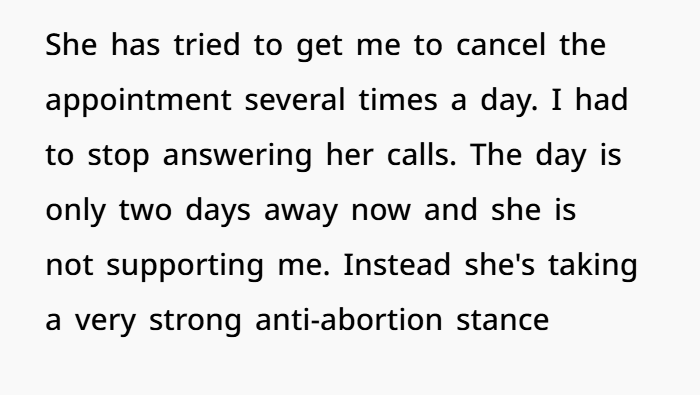
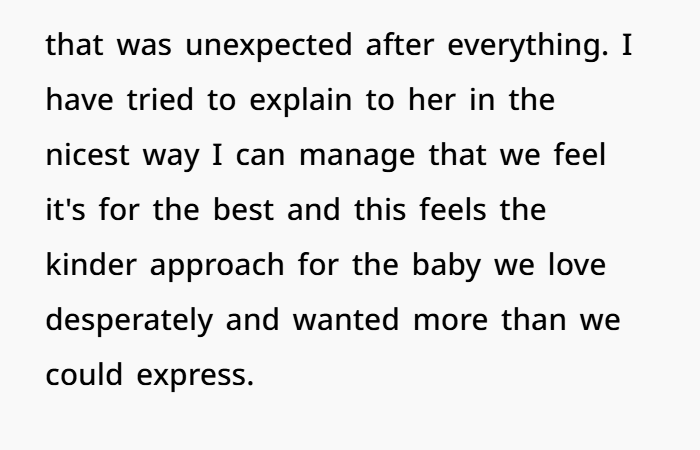
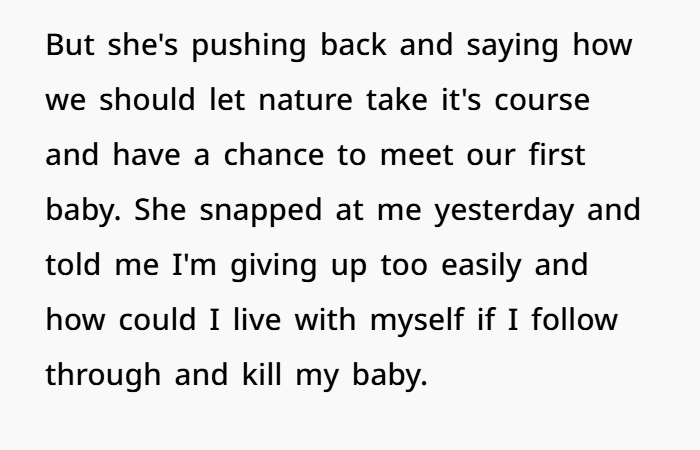
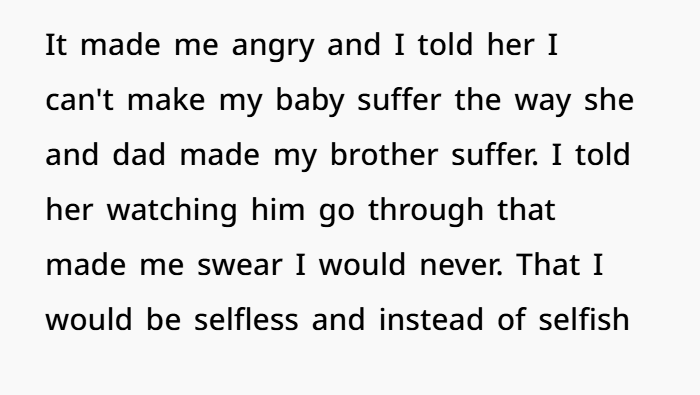
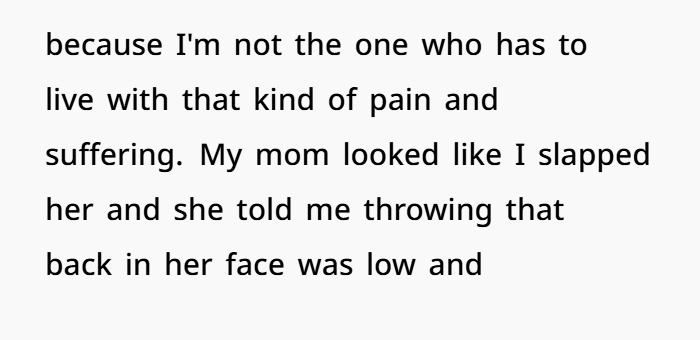
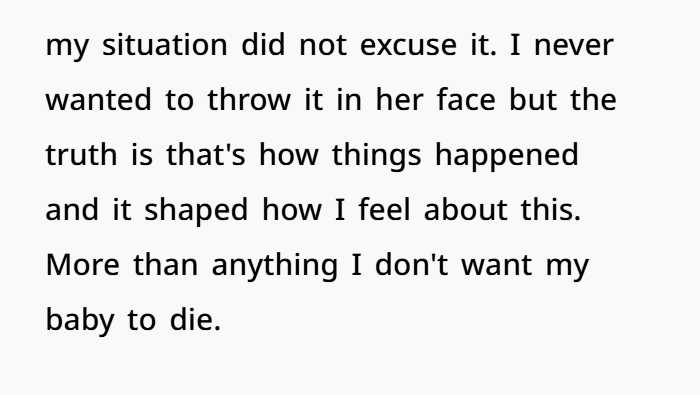
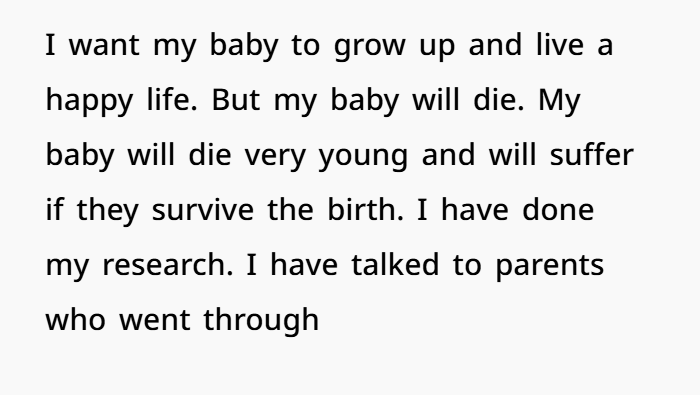
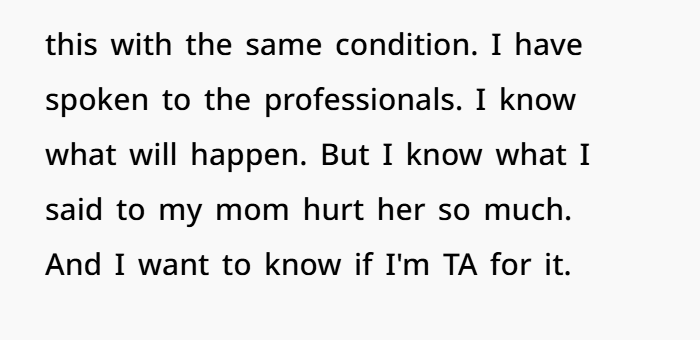

Ethical, Medical, and Emotional Complexities of Ending a Wanted Pregnancy
When a parent is faced with a fatal fetal diagnosis, the decision to terminate or continue the pregnancy isn’t just a medical one—it’s a deeply moral and emotional crossroads. These decisions sit at the intersection of modern prenatal diagnostics, human ethics, and personal lived experience. In this case, OP’s decision is not based on convenience, but on trauma, love, and a desire to shield her child from guaranteed suffering.
Medical Realities: What Constitutes a “Fatal Fetal Abnormality”?
A fatal fetal abnormality refers to a congenital condition that is considered incompatible with sustained life outside the womb. Examples include anencephaly, thanatophoric dysplasia, and certain severe forms of Trisomy 13 and 18. In these cases, infants either die in utero, shortly after birth, or survive with intense suffering and profound disability.
A landmark study published in the American Journal of Obstetrics and Gynecology in 2016 found that parents who received a fatal fetal diagnosis reported significantly lower levels of anxiety and depression when they chose to terminate compared to those who continued the pregnancy, particularly when the decision was made early and supported by medical professionals (source).
What’s critical here is that the OP consulted not one, but three separate doctors, and did independent research, including speaking with other parents who faced the same condition. Her decision wasn’t impulsive. It was informed, methodical, and deeply personal.
Ethical Considerations: Mercy vs. Hope
This story forces readers to confront one of the most heart-wrenching ethical questions: Is it more loving to allow a child a short life of suffering, or to prevent that suffering altogether?

For some, especially those informed by religious or pro-life beliefs, the answer might be to carry the pregnancy to term regardless of prognosis, to give the baby every possible chance. This seems to be where OP’s mother lands, despite her own past trauma. Her response may be a form of misplaced redemption—hoping her daughter might succeed where she “failed” or find meaning where she found regret.
But OP’s reasoning is equally powerful. Her decision is not about giving up—it’s about refusing to gamble with her child’s pain. She remembers her brother’s suffering not as a noble fight, but as an agony that left lasting scars on the entire family. She has internalized this experience into a protective instinct—to prevent her child from enduring the same.
Psychological Impact on Parents and Families
The mental toll of carrying a pregnancy to term with a known fatal outcome is enormous. A 2018 study from Journal of Palliative Medicine found that bereaved parents who chose to carry to term often reported significant psychological distress, including prolonged grief, PTSD, and depression (source).
In contrast, parents who made the decision to terminate, especially with support from counselors and doctors, were more likely to report peace with their decision in the long term. But this peace doesn’t come without pain. There is no “easy” path—just different kinds of grief.
For OP, the grief is compounded by familial tension. Her father’s support is a grounding force, but her mother’s opposition, tinged with guilt and a need to rewrite history, places enormous emotional weight on her at a time when she most needs compassion.
Generational Trauma and Memory
One of the most poignant aspects of this post is how past trauma shapes present decisions. OP’s childhood memory of her brother’s suffering is not a distant recollection—it’s a visceral, formative experience. She doesn’t just recall the medical procedures and hospital visits; she remembers the emotional devastation and how it changed her family forever.
Psychologists call this intergenerational trauma, where the psychological wounds of one generation influence the behavior and choices of the next. In this case, OP has internalized a solemn vow: never to let history repeat itself. And while her mother may see that vow as a rebuke, OP views it as a solemn act of protection and love.
Societal and Legal Context
In the U.S., access to abortion—especially for cases involving fetal abnormalities—is increasingly restricted depending on state laws. Following the 2022 Supreme Court decision overturning Roe v. Wade, several states have banned or severely limited abortion even in cases of fatal fetal diagnoses. This makes stories like OP’s not only emotionally charged but legally precarious.
As of 2024, 14 U.S. states have near-total abortion bans, and only a handful explicitly allow exceptions for fatal fetal anomalies (Guttmacher Institute). This legal chaos often forces families to travel across state lines for medical care, compounding their trauma with logistical and financial burdens.

In OP’s case, her access to multiple medical opinions and the support of her father suggest she lives in a state with relatively permissive laws. But even here, the stigma around abortion—even medically indicated ones—remains a powerful force, particularly within families and communities.
People sided with the poster and told her that it was her choice to make and not her mother’s
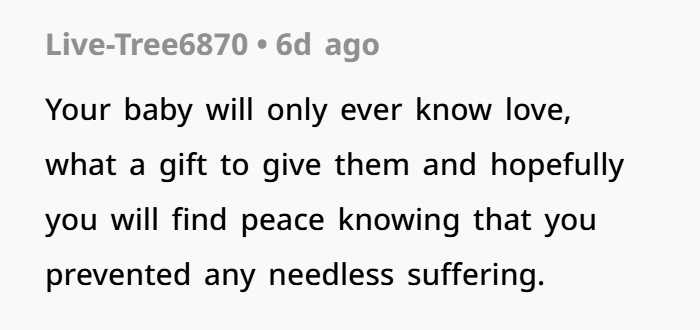
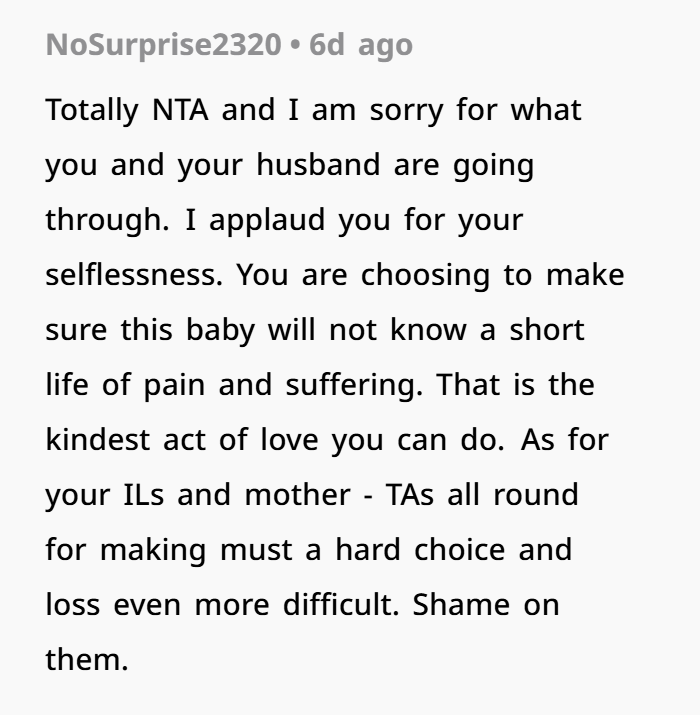
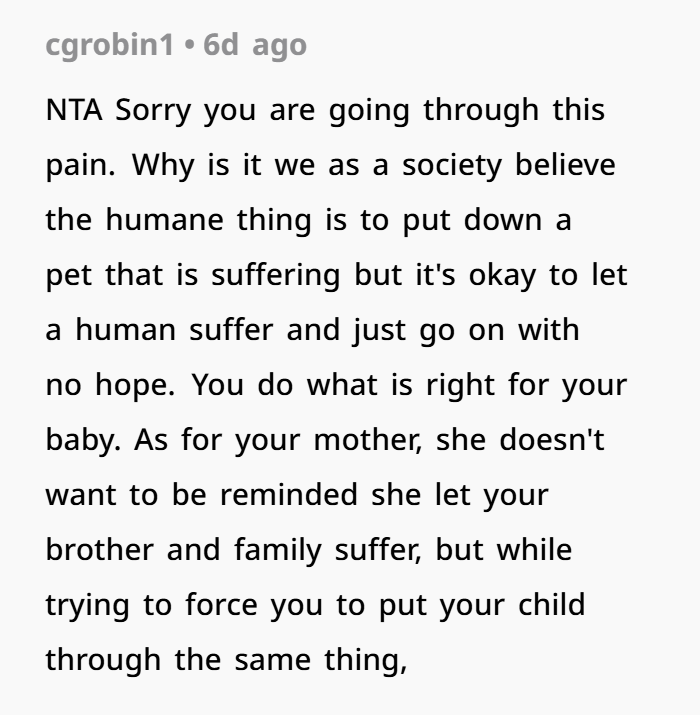

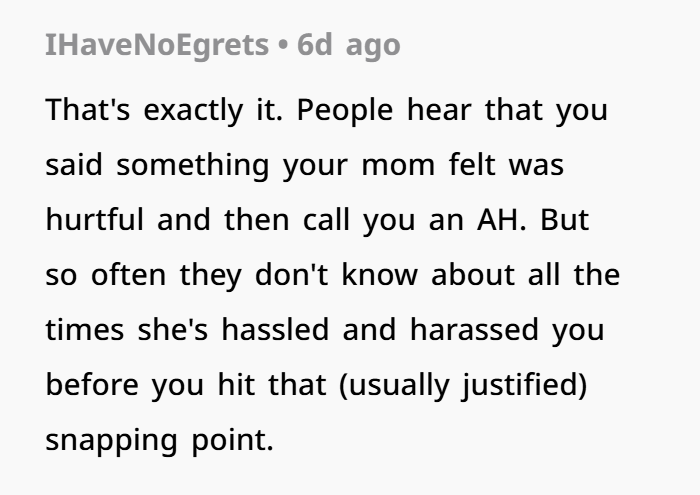
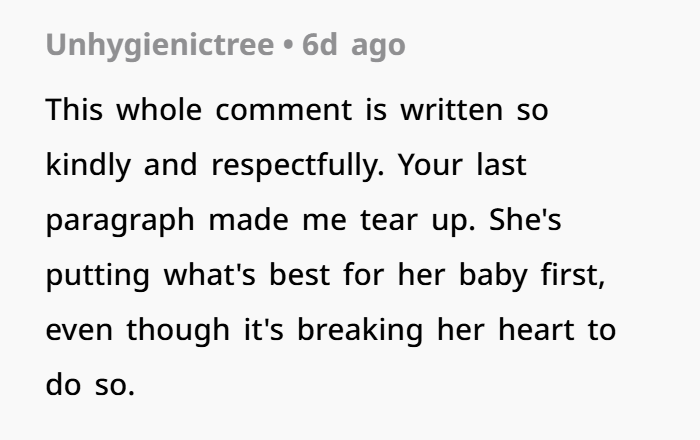
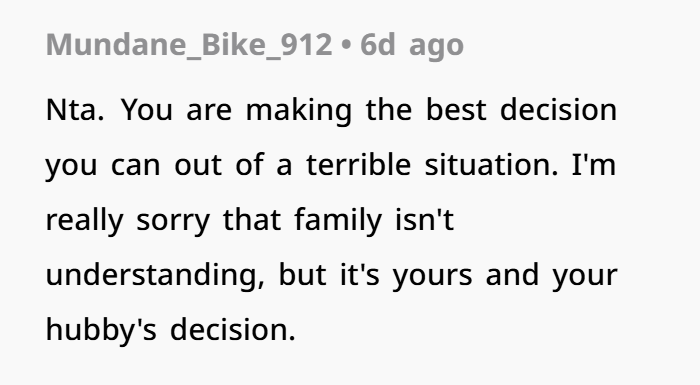
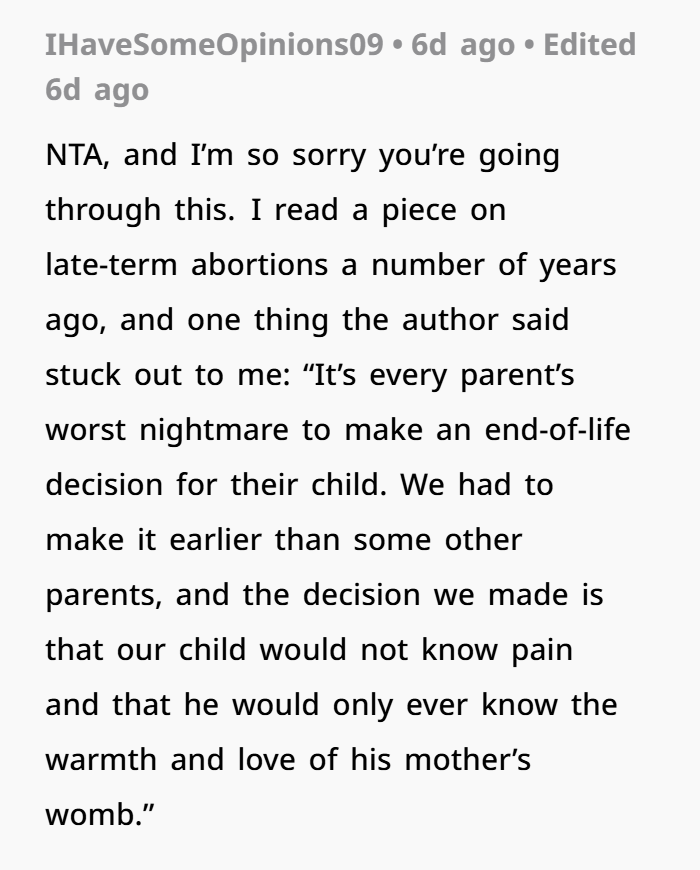
Is She the A**hole?
In a word: no.
OP is not the a**hole. She is a grieving mother making an unthinkable decision, grounded in knowledge, experience, and love. Her words to her mother were sharp, yes—but they came from a place of deep pain and conviction. She didn’t lash out to hurt; she spoke her truth, a truth shaped by years of witnessing her brother’s agony.
Her mother’s heartbreak is valid, but so is OP’s choice. What she needs now is empathy, not judgment. She carries both the sorrow of letting go and the strength to do what she believes is merciful.
In a world full of platitudes about the sanctity of life, OP reminds us that sometimes, the most sacred act of love is letting go.

